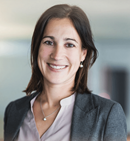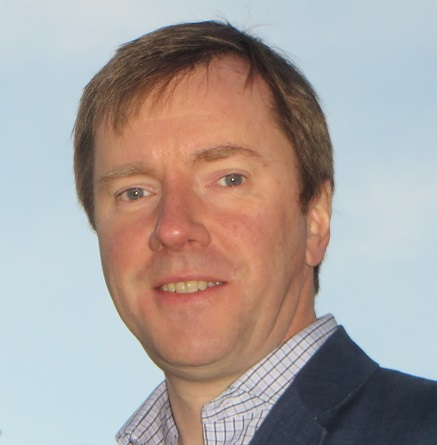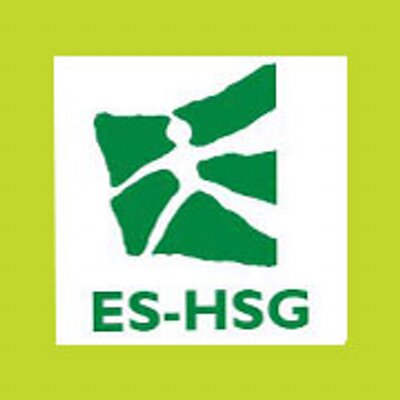- CSR
Profit Plus People and Planet
St. Gallen’s Prof. Dr. Karolin Frankenberger on bringing responsible business into current business models
A conversation with Prof. Dr. Karolin Frankenberger, Academic Director of Executive MBA HSG and the Director of the Institute of Management and Strategy, School of Management, University of St.Gallen.
Prof. Dr. Karolin Frankenberger, notes that participants in her executive education and EMBA programs are often surprised by how much time they devote to new business models that focus on responsible business and the circular economy.

But as she explains, the surprise is a positive one. These are conversations they regularly have inside their businesses, but rarely get to explore in a meaningful way, with their peers outside their own organization. For Frankenberger this is welcome feedback. Her research interests are developing along three parallel yet connected lines. For several years she has explored business model innovation within existing businesses and how new models can be nurtured and grown without entirely disrupting the existing, mature and profitable processes. This has led to her current investigation, interviewing over 100 senior executives to identify the key influencing factors that make transformation (primarily digital transformation) successful.
So far, so good – these are core strategy concepts and research areas. But it is her third thread of investigation that weaves in a broader set of issues. The question of ‘responsible business’. How are commercial organizations facing up to the two further Ps of the ‘triple bottom line’: people and planet, to add to the traditional bottom line of ‘profit’.
This is fertile territory for business schools. The sector as a whole has come in for a fair degree of criticism after the financial crisis, on being too fixated on the single ‘neo-liberal market capitalism’ approach, and many schools are broadening their horizons in response to both student demand and broader, external changes, to incorporate more holistic approaches, frameworks and models than those purely driven by profit.
Frankenberger is quick to point out that at St Gallen this broader approach has been part of their DNA for a long-time. Partly due to the systems-thinking approach the management school’s founder, Hans Ulrich, promoted from the institution’s earliest days in the mid-1950s, which was predicated on explaining and interpreting complex systems, and particularly the relationship between dynamic systems and social systems.
Frankenberger notes that St Gallen’s close connection with the ‘hidden champions’ of the DACH (Germany, Austria and Switzerland) region’s ‘Mittelstand’ – those highly profitable, highly specialized business-to-business enterprises that underpin these economies – has also driven responsible business thinking at the school. The vast majority of these businesses are family-owned, or significantly owned by their founding families, (an area St Gallen has particular expertise in, compiling the annual Family Business Index, co-published with EY) and this brings a different set of dynamics, most obviously longer time horizons (often decades or even centuries, rather than quarters) and a sense that their futures are closely aligned with their communities.
“It's not only about profit maximization but that we as businesses have to take more responsibility. That we also need to make sure we solve the big problems that are out there and that family-owned organizations tend to think more sustainably and they are more responsible than shareholder-owned organizations. It is too simple an excuse to say ‘my shareholders won’t accept it,’” she says.
The exciting part for Frankenberger is to identify a sustainable path forward for their clients. “For sure we need to go for profit maximization, but profit maximization under certain conditions, which means that your profit might be a bit lower, but you are also making a positive impact for society and a positive impact on the planet. And you need to make sure that your customers also get that, and they stick with your organization and not only go for the organization that offers the lowest price in the market.”
These are the new challenges facing businesses, and they are complex and multi-layered. Frankenberger and her colleagues at St Gallen today – by studying and researching the underlying issues, and identifying the core factors that can help bring clarity to this complexity – are playing a vital role in guiding executives struggling to find their way through this new emerging maze of business problems, to find solutions that work for their businesses, their employees, their communities and for wider society.
Our Executive Education programmes are characterised by its high level of relevance for current practical issues, by drawing on the latest results in research.
ARTICLES YOU MIGHT LIKE
BOOK REVIEW
A practical guide to sustainable corporate sourcing and running a scandal-free supply chain
DEVELOPING LEADERS QUARTERLY MAGAZINE AND WEEKLY BRIEFING EMAILS


































